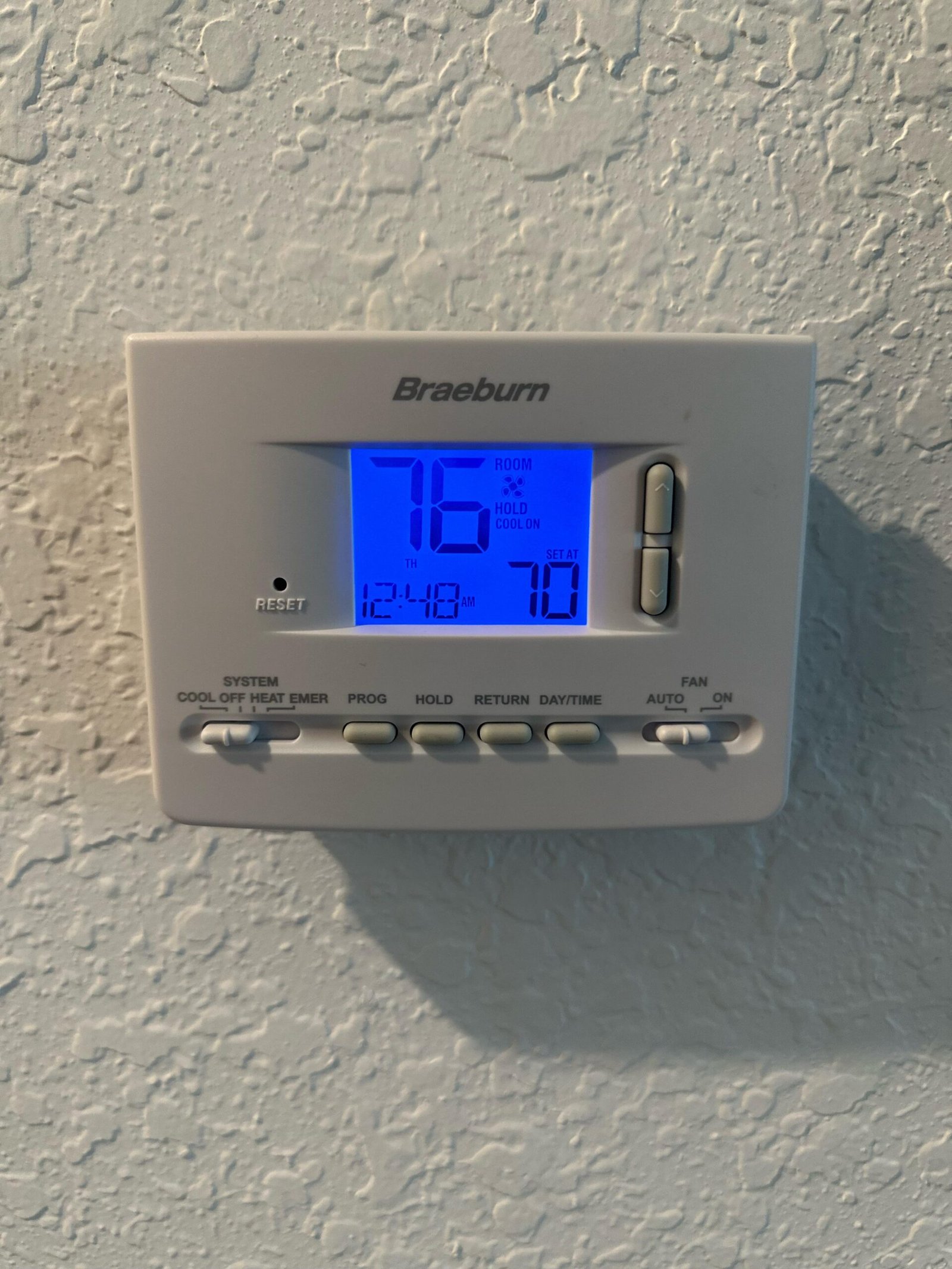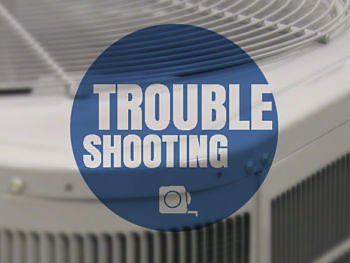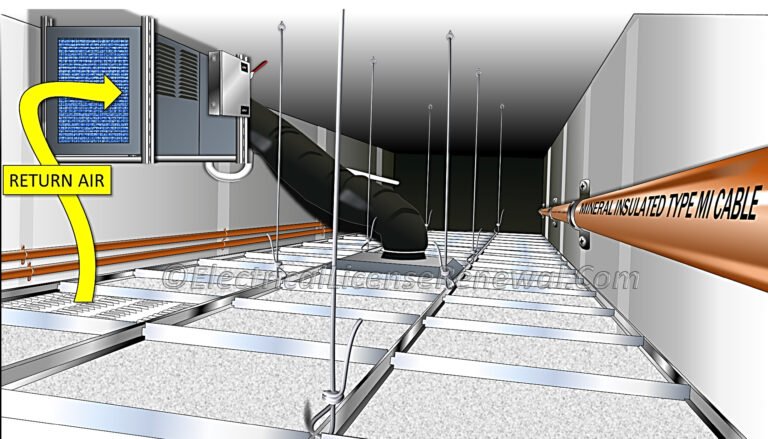
Your HVAC system should keep your home comfortable. But why is it blowing cool air when set to 74 degrees?
This common issue can be frustrating and confusing. Understanding why your HVAC system isn’t heating properly can save you time and money. Several factors might cause this problem. It could be as simple as a thermostat setting or as complex as a malfunctioning component.
In this post, we’ll explore possible reasons and offer solutions. You’ll learn how to diagnose the problem and when to call a professional. Let’s get your home back to a cozy 74 degrees. Keep reading to uncover the mystery behind your cool air conundrum.
Common Hvac Issues
Your HVAC system should maintain the temperature you set on the thermostat. But sometimes, it may blow cool air instead. This can be frustrating. Understanding common HVAC issues can help you identify the problem. Let’s explore some frequent causes.
Thermostat Problems
The thermostat controls your HVAC system. If the settings are wrong, it can cause issues. Check if the thermostat is set to “cool” instead of “heat”. Also, ensure the fan setting is “auto”. A dead battery can also disrupt its function. Replacing it may solve the issue. Calibration errors can also occur. In this case, consult your HVAC technician.
Refrigerant Levels
Refrigerant is crucial for your HVAC system. It helps in cooling the air. Low refrigerant levels can cause the system to blow cool air. Leaks in the refrigerant line are common. This requires immediate attention. A certified technician should handle this. They will fix the leak and refill the refrigerant. This ensures your system works efficiently.

Credit: www.wmhendersoninc.com
Thermostat Settings
Have you ever set your HVAC system to 74 degrees, only to feel a cool breeze in the room? Your thermostat settings might be the culprit. Simple adjustments could bring you the comfort you seek.
Incorrect Programming
Many homeowners experience issues due to incorrect programming. Your thermostat might be set to the wrong mode, like ‘cool’ instead of ‘heat’. Double-check the mode to ensure it’s set correctly.
Another common mistake is setting the wrong time for temperature changes. If you notice cool air during a time when you expect warmth, the schedule might be off. Make sure the programmed times align with your daily routine.
Thermostat Placement
The placement of your thermostat can greatly affect its performance. If it’s located in a drafty hallway or near a heat source, it might give inaccurate readings. This can cause your HVAC system to push out cool air when it shouldn’t.
Try relocating your thermostat to a central location. This will provide a more accurate representation of your home’s overall temperature. Your living room or a central hallway are typically good choices.
Have you checked if sunlight hits your thermostat directly? Direct sunlight can trick it into thinking your home is warmer than it is. If this is the case, consider moving it to a shaded spot.
By tweaking these thermostat settings, you can often resolve why your HVAC system is pushing out cool air. Have you checked your thermostat lately? It might just need a simple adjustment to bring back the comfort.
Airflow Obstructions
Obstructions in airflow can cause your HVAC system to push out cool air even when set to 74 degrees. Blocked vents or dirty filters often disrupt the proper functioning of the system. Regular maintenance can help avoid these issues.
When your HVAC system starts pushing out cool air, even though it’s set to 74 degrees, the issue can often be traced back to airflow obstructions. These obstructions can prevent warm air from circulating properly, causing your system to struggle. Let’s delve into two common culprits: dirty air filters and blocked vents.Dirty Air Filters
Dirty air filters can severely restrict airflow in your HVAC system. When was the last time you checked your filters? If you can’t remember, it’s likely time for a change. A clogged filter forces your system to work harder, reducing its efficiency and potentially causing it to blow cool air instead of warm. Think of it this way: trying to breathe through a straw clogged with debris is challenging. Your HVAC system experiences the same struggle. Replacing the filters every 1-3 months can keep the air flowing smoothly.Blocked Vents
Blocked vents are another common issue that can lead to inadequate airflow. Have you recently rearranged your furniture? Sometimes, vents can get unintentionally covered by rugs, furniture, or other household items, disrupting the airflow. Take a walk around your home and inspect each vent. Make sure they are open and unobstructed. Even small items like toys or books can block a vent and affect your system’s performance. In my experience, I once found a vent completely covered by a large bookcase. After moving the bookcase, the airflow improved dramatically, and the room temperature stabilized. Are there any vents in your home that might be blocked? Taking a few minutes to check could save you from a lot of discomfort.
Credit: www.cooltoday.com
Refrigerant Leaks
Dealing with an HVAC system that blows cool air when set to 74 degrees can be frustrating. One common cause of this issue is refrigerant leaks. Refrigerant plays a crucial role in the cooling process of your HVAC system. When there’s a leak, the refrigerant level drops, affecting the system’s ability to cool your home effectively. This issue can lead to increased energy bills and discomfort in your living space.
Signs Of Low Refrigerant
Recognizing the signs of low refrigerant can help you address the problem early. One sign is the HVAC system taking longer to cool your home. Another sign is ice forming on the refrigerant lines or the evaporator coil. You might also hear a hissing or bubbling sound, which indicates a leak. If you notice these signs, it’s time to take action.
Repair Options
Fixing a refrigerant leak should be a priority. First, a professional can perform a leak test to locate the source of the problem. Once found, the technician will repair the leak. They will also recharge the refrigerant to the correct level. This process ensures your HVAC system runs efficiently and keeps your home comfortable.
Regular maintenance can prevent future refrigerant leaks. Scheduling annual check-ups can help catch issues before they become serious. A well-maintained HVAC system will save you money and provide consistent comfort.
Compressor Issues
If your HVAC system is blowing cool air despite being set to 74 degrees, compressor issues might be the cause. The compressor is a critical component of your HVAC system. It helps circulate the refrigerant needed for cooling. When it malfunctions, your system cannot effectively cool your home.
Compressor Failures
Compressor failures can stem from various issues. One common problem is electrical faults. These faults can lead to a complete compressor breakdown. Another issue could be refrigerant leaks. Low refrigerant levels strain the compressor, causing it to overheat and fail. Blockages in the refrigerant lines can also cause compressor issues. Debris or dirt can build up, preventing proper refrigerant flow. This leads to the compressor working harder and potentially burning out.
Maintenance Tips
Regular maintenance can prevent compressor failures. Start by scheduling annual HVAC inspections. Professional technicians can identify and fix small issues before they become big problems. Replace air filters every one to three months. Clean filters ensure efficient airflow and reduce strain on the compressor. Check refrigerant levels frequently. Low levels indicate a leak, which needs immediate attention. Clean the outdoor unit regularly. Remove debris and ensure the unit has at least two feet of clearance. This helps prevent blockages and overheating. Lastly, listen for unusual noises. Strange sounds can indicate compressor problems. Address these issues quickly to avoid costly repairs.

Credit: www.reddit.com
Electrical Problems
Experiencing cool air from your HVAC system when it’s set to 74 degrees can be frustrating. One common cause of this issue is electrical problems. Electrical problems can disrupt the normal functioning of your HVAC system, leading to unexpected issues like cool air blowing out.
Blown Fuses
Blown fuses can stop your HVAC system from working properly. Fuses protect your system from electrical overloads. When a fuse blows, the system can’t run as it should. This can cause it to push out cool air instead of warm air. Regularly checking and replacing fuses can prevent this problem.
Faulty Wiring
Faulty wiring is another electrical issue that can affect your HVAC system. Wires can wear out or get damaged over time. This can cause poor connections or even shorts. Faulty wiring can lead to inconsistent temperatures and cool air blowing out. Have a professional check your wiring to ensure it’s safe and functional.
Ductwork Concerns
If your HVAC system is pushing out cool air when it’s set to 74 degrees, the problem might lie in your ductwork. Many homeowners overlook ductwork issues, but they can significantly impact your system’s performance. Let’s explore some common ductwork concerns that could be causing this issue.
Leaky Ducts
Leaky ducts can be a major culprit behind cool air when you expect warmth. When ducts have holes or gaps, the conditioned air escapes before it reaches your living space. This not only causes your system to work harder but also results in uneven temperatures throughout your home.
Imagine trying to fill a balloon with holes—no matter how much air you pump in, it won’t stay inflated. Similarly, your HVAC system struggles to maintain the desired temperature if air is leaking out. Check for visible signs of leaks or hire a professional to inspect your ductwork.
Improper Insulation
Insufficient insulation in your ductwork can also cause cool air to blow out when you want it warm. Ducts that run through unconditioned spaces like attics or basements can lose heat if they aren’t properly insulated. This means the air that finally reaches you isn’t as warm as it should be.
Think about how you bundle up in winter to retain body heat. Your ductwork needs the same treatment. Adding insulation around your ducts can help maintain the temperature of the air traveling through them.
Have you ever checked the insulation in your ductwork? It might be worth a look, especially if you’re experiencing this issue. Proper insulation can make a noticeable difference in your HVAC system’s efficiency.
Addressing these ductwork concerns can help ensure your HVAC system delivers the comfortable temperature you expect. Don’t let leaky ducts or poor insulation keep you from enjoying a warm home. Take action and enjoy the benefits of a well-functioning HVAC system.
Professional Help
When your HVAC system starts pushing out cool air despite being set to 74 degrees, it’s time to seek professional help. Technical issues can be complex. A trained technician can accurately diagnose and fix the problem. Professional help ensures your system runs efficiently and safely.
When To Call A Technician
Notice unusual noises or smells from your HVAC system? It’s time to call a technician. If the system cycles on and off frequently, it may indicate an issue. Sudden increases in your energy bills can also be a sign. If basic troubleshooting doesn’t work, professional help is needed.
Choosing A Service Provider
Choosing the right service provider is crucial. Start by checking reviews online. Ask for recommendations from friends or family. Ensure the provider is licensed and insured. Look for technicians with experience in HVAC systems. Good customer service is a must.
Ask about their warranties and guarantees. Compare quotes from different providers. Choose a service provider that fits your needs and budget.
Frequently Asked Questions
Why Is My Ac Only Cooling To 74?
Your AC might only cool to 74 due to a dirty filter, low refrigerant, or thermostat issues. Check for blockages, clean filters, or call a technician.
Why Is My Hvac Blowing Cold Air On Heat Setting?
Your HVAC might blow cold air due to a malfunctioning thermostat, dirty filters, or an issue with the pilot light. Ensure regular maintenance to avoid such problems. Contact a professional if the issue persists.
Why Is My Ac Making It Colder Than Temp Is Set To?
Your AC might be making it colder due to a faulty thermostat, sensor issues, or incorrect settings. Check and adjust the thermostat.
Why Is My Ac Not Reaching The Set Temperature?
Your AC may not reach the set temperature due to blocked air filters, refrigerant issues, or thermostat problems. Check for leaks, clean filters, and ensure proper maintenance.
Conclusion
Your HVAC system pushing out cool air can be frustrating. Check thermostat settings first. Ensure vents are clean and unobstructed. Regular maintenance can prevent issues. If problems persist, call a professional. They can diagnose and fix the problem. Timely repairs save money and stress.
Stay comfortable all year round. Keep your HVAC system in top shape.






